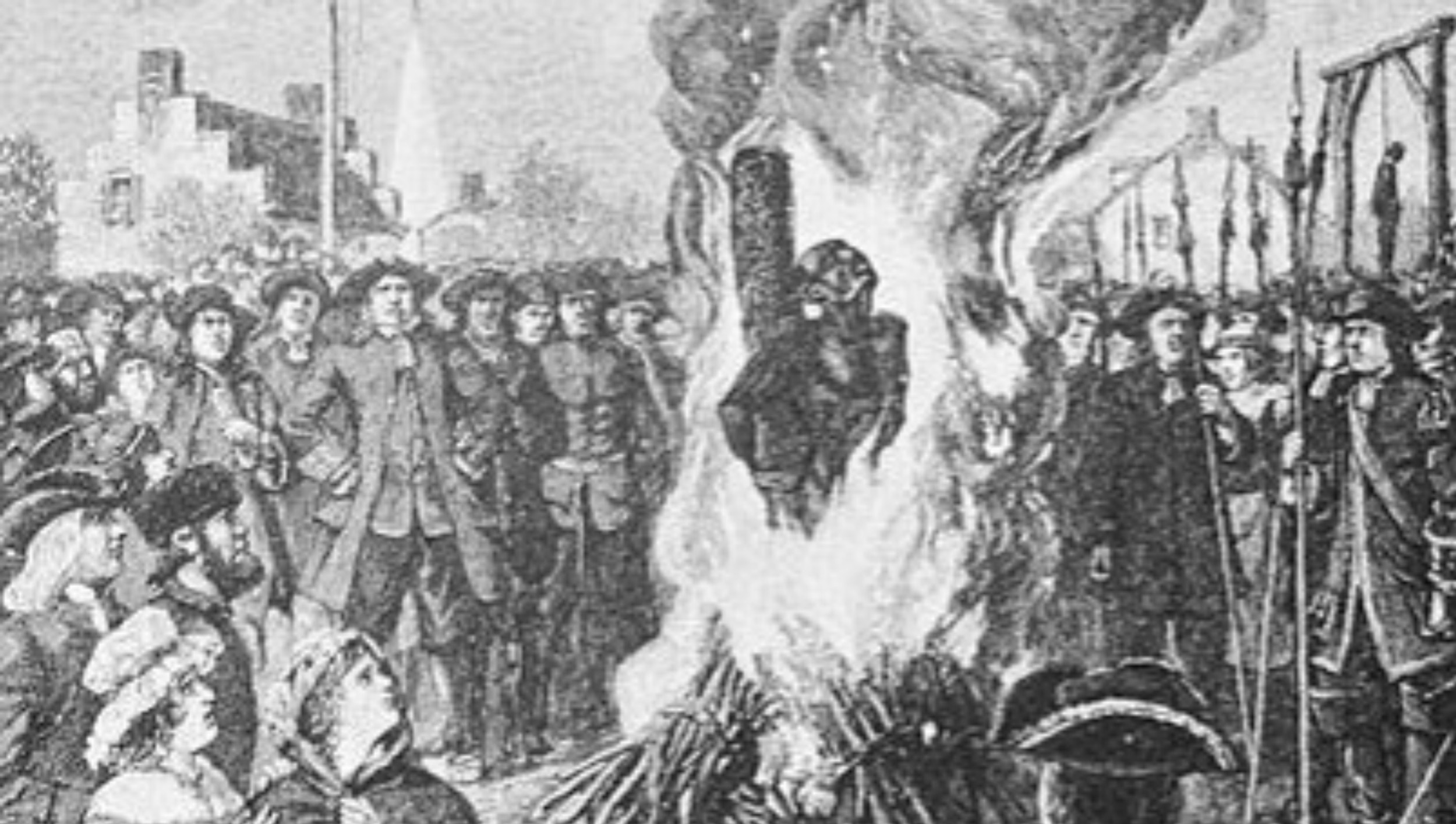
noun
- a stick or post pointed at one end for driving into the ground as a boundary mark, part of a fence, support for a plant, etc.
- a post to which a person is bound for execution, usually by burning.
- the stake, the punishment of death by burning: Joan of Arc was sentenced to the stake.
- one of a number of vertical posts fitting into sockets or staples on the edge of the platform of a truck or other vehicle, as to retain the load.
- Mormon Church. a division of ecclesiastical territory, consisting of a number of wards presided over by a president and two counselors.
- sett(def 2).
verb (used with object), staked, stak·ing.
- to mark with or as if with stakes (often followed by off or out): We staked out the boundaries of the garden.
- to possess, claim, or reserve a share of (land, profit, glory, etc.) as if by marking or bounding with stakes (usually followed by out or off): I’m staking out ten percent of the profit for myself.
- to separate or close off by a barrier of stakes.
- to support with a stake or stakes, as a plant: to stake tomato vines.
- to tether or secure to a stake, as an animal: They staked the goat in the back yard.
- to fasten with a stake or stakes.
Verb Phrases
- stake out,
- to keep (a suspect) under police surveillance.
- to appoint (a police officer) to maintain constant watch over a suspect or place.
Idioms
- pull up stakes, Informal. to leave one’s job, place of residence, etc.; move: They pulled up stakes and went to California.
noun
- a stick or metal bar driven into the ground as a marker, part of a fence, support for a plant, etc
- one of a number of vertical posts that fit into sockets around a flat truck or railway wagon to hold the load in place
- a method or the practice of executing a person by binding him to a stake in the centre of a pile of wood that is then set on fire
- Mormon Church an administrative district consisting of a group of wards under the jurisdiction of a president
- pull up stakes to leave one’s home or temporary resting place and move on
verb (tr)
- to tie, fasten, or tether with or to a stake
- (often foll by out or off) to fence or surround with stakes
- (often foll by out) to lay (a claim) to land, rights, etc
- to support with a stake
noun
- the money or valuables that a player must hazard in order to buy into a gambling game or make a bet
- an interest, often financial, held in somethinga stake in the company’s future
- (often plural) the money that a player has available for gambling
- (often plural) a prize in a race, etc, esp one made up of contributions from contestants or owners
- (plural) horse racing a race in which all owners of competing horses contribute to the prize money
- US and Canadian informal short for grubstake (def. 1)
- at stake at risktwo lives are at stake
- raise the stakes
- to increase the amount of money or valuables hazarded in a gambling game
- to increase the costs, risks, or considerations involved in taking an action or reaching a conclusionthe Libyan allegations raised the stakes in the propaganda war between Libya and the United States
verb (tr)
- to hazard (money, etc) on a result
- to invest in or support by supplying with money, etcto stake a business enterprise
n.1“pointed stick or post,” Old English staca, from Proto-Germanic *stakon (cf. Old Norse stiaki, Dutch staak, German stake), from PIE root *steg- “pole, stick.” The Germanic word has been borrowed in Spanish (estaca), Old French (estaque), and Italian stacca) and was borrowed back as attach. Meaning “post upon which persons were bound for death by burning” is recorded from c.1200. Stake-body as a type of truck is attested from 1907. In pull up stakes, “The allusion is to pulling up the stakes of a tent” [Bartlett]. v.early 14c., “to mark (land) with stakes,” from stake (n.1). Hence, to stake a claim (1857). Meaning “to risk, wager” is attested from 1520s, probably from notion of “post on which a gambling wager was placed,” though Weekley suggests “there is a tinge of the burning or baiting metaphor” in this usage. Meaning “to maintain surveilance” (usually stake out) is first recorded 1942, American English colloquial, probably form earlier sense of “mark off territory.” Related: Staked; staking. n.2“that which is placed at hazard,” 1530s, from stake (v.). Plural stakes, as in horse racing, first recorded 1690s (cf. sweepstakes). To have a stake in is recorded from 1784. see burn at the stake. In addition to the idioms beginning with stake
also see:
 Liberal Dictionary English Dictionary
Liberal Dictionary English Dictionary